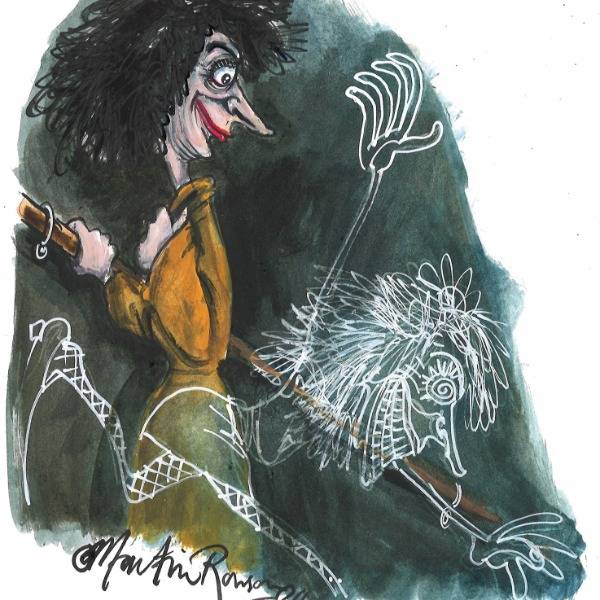
This article is a preview from the Summer 2020 edition of New Humanist
In case we run into each other at around the time these words appear in print, I should warn you that I may be unrecognisable. My face may be familiar but my arms and chest and shoulders will have been transformed by morning exercise. By that time I will also have acquired an in-depth knowledge of neo-realist cinema, a Duolingo fluency in conversational Italian and a capacity, if called upon, to sing along with most of Verdi’s arias.
These, though, are relatively minor improvements compared to the dramatic changes that are taking place in my domestic sensitivity. Take my marriage. In pre-viral days when friends dutifully enquired about the general well-being of my partner – “And your wife? She’s keeping well?” – I would confine myself to muttering some equally amiable reassurance. “She’s fine. Had a bit of a sniffle last week. But that seems to have passed. So no real problems.”
Nowadays though, having spent the best part of four months in her immediate and proximate company, four months knotted to her apron strings, I can document her state of being with considerably more precision. I can mention, for example, that my wife, although in relatively good health, is currently extremely worried about her sister running out of spray-on hair dye and has also been extremely disconcerted by the discovery that the full-length skirt she bought last year in Paris really doesn’t go with the sequined top that she recently obtained online from John Lewis.
And if my enquirer is still around by this stage of the conversation, I might also mention that my wife currently finds it difficult to go to sleep at night unless she quietens her mind by attempting to think of a dozen films which match successive letters of the alphabet. Only last night she was wrestling for the best part of an hour with “Y”. “I’ve only got The Young Ones and Young Frankenstein and Yentl.”
Not only am I now intimately aware of my wife’s familial and sartorial concerns, I am also privy to something far deeper. I have discovered that my wife periodically suffers from a disturbing psychological condition. “As you’re now showing so much more interest in my life and times,” she said one night while we were waiting to watch L’Avventura, “I might as well tell you that recently I’ve begun to suffer from angst. It’s a sort of nameless dread.”
In normal pre-viral times, I might have sought to dismiss such a personal confession by suggesting a change of television channel or a refreshing gin and tonic, but my new domestic sensitivity meant that I could readily relieve my wife’s anxiety. I could name her dread. I could gently tell her that it was called “our home”.
Whereas for many years, our flat had no more impinged upon our consciousness than Thought for the Day, it has now, during the months of lockdown, become an active living threat. A great big thoroughly nameable source of angst.
Objects that previously stayed in their proper place are now beginning to rise up against us like hideous ghosts. Without the regular presence of our Wednesday afternoon cleaner, stains are springing up overnight on the kitchen floor like funghi. Cans of beans and plastic packages of chopped coriander leap from cupboards without prompting, indoor plants lie down and die, pictures on the wall turn awry, and the very sofa on which I’d gained my elementary Italian and my working knowledge of neo-realist film, has quite suddenly and inexplicably begun to smell of Marmite toast. Bins that were always half-empty now burgeon twice a day with refuse. Windows that once afforded a pleasing view of Old Street now have all the transparency of a used hand towel.
“I have to say,” said my wife one evening as I was vigorously scouring a frying pan, “that I can only welcome all this attention to me and to our surroundings.”
She recalled a moment from early in lockdown. “Remember the day you came into the bedroom and I asked if you noticed anything different about me? And you had three guesses. Was it my new dress, you asked? No, it wasn’t. Was it my new hairstyle, you asked? No, it wasn’t. Was it my new perfume, you asked? No, it wasn’t. It was only when you finally gave up that I chose to tell you I was wearing a full frontal facemask.”

